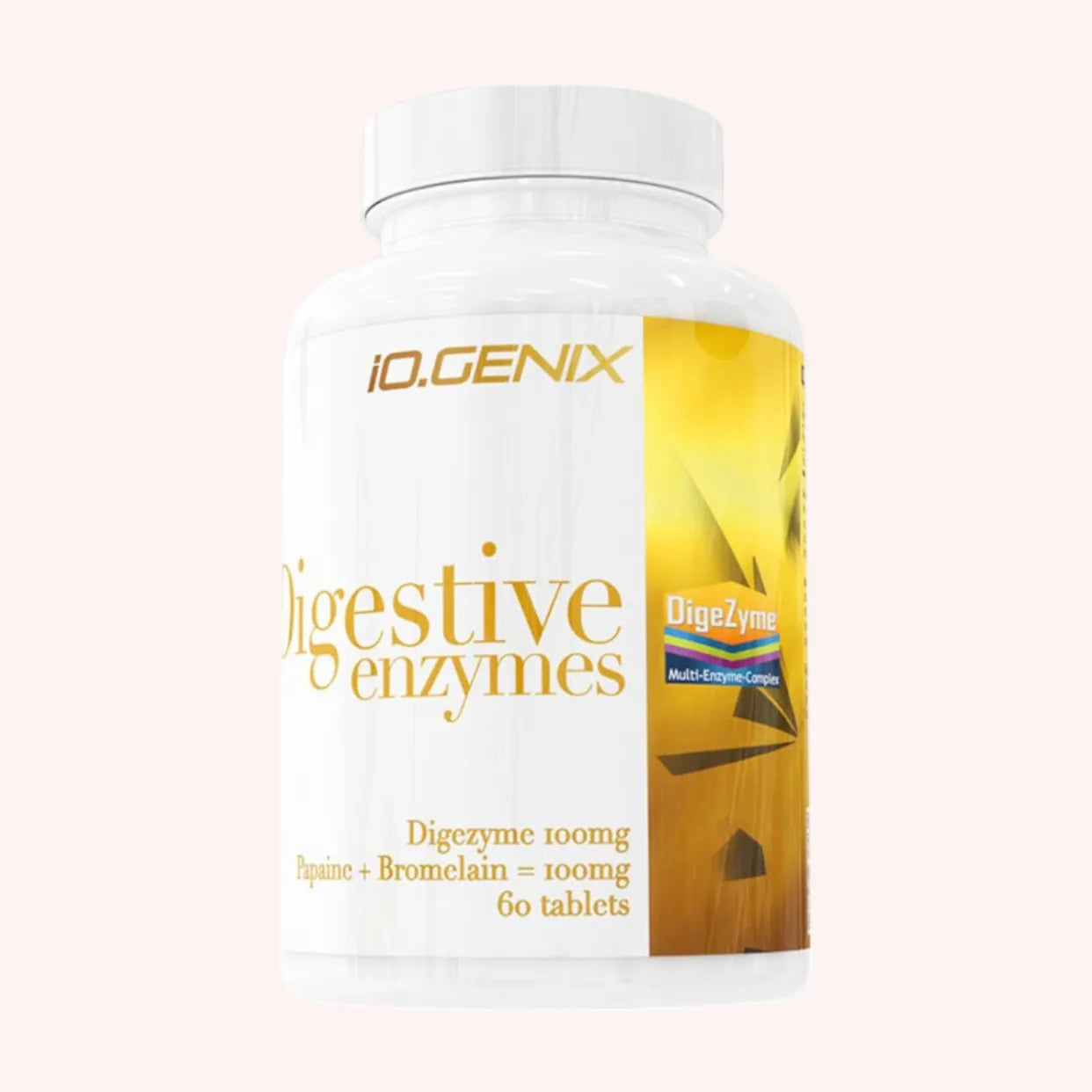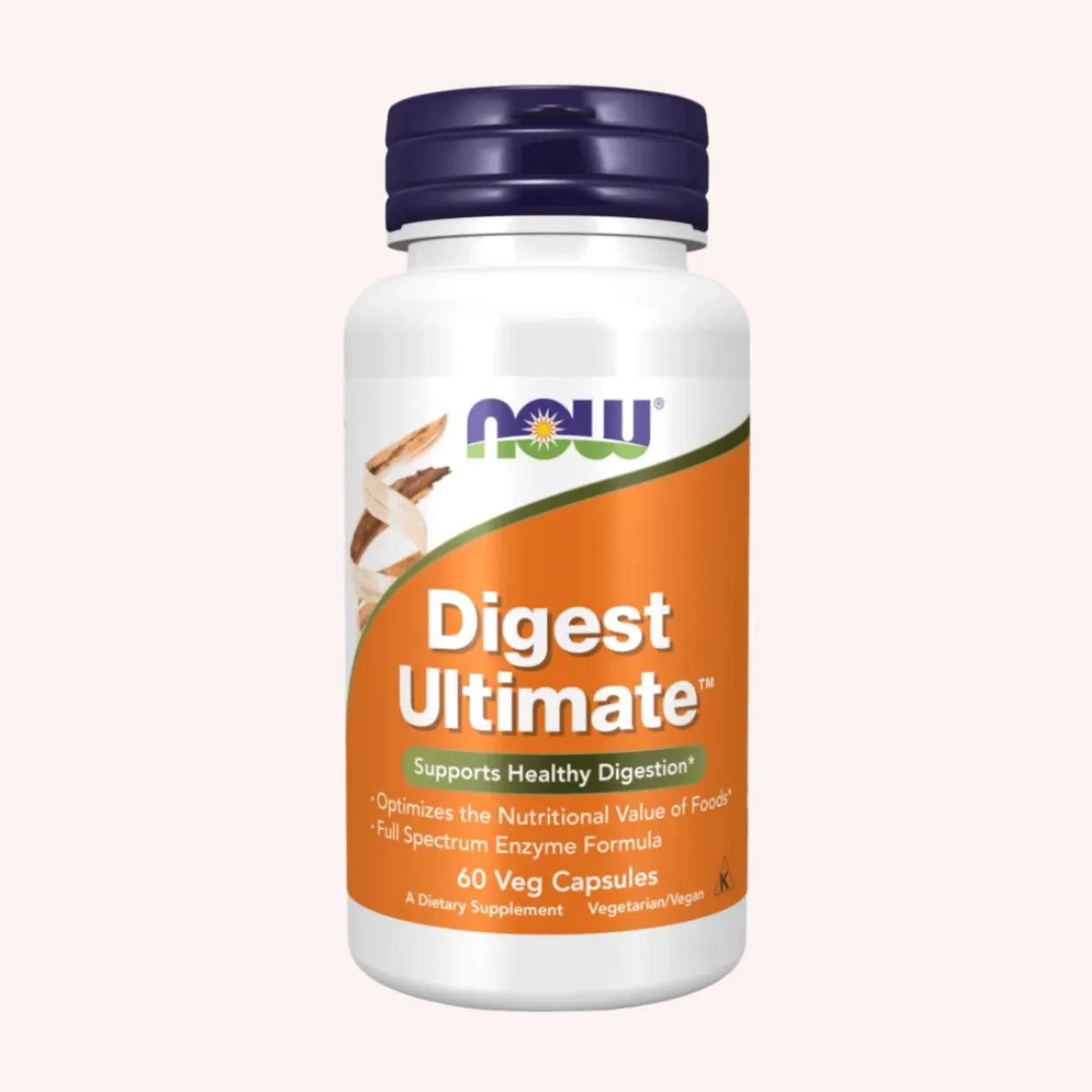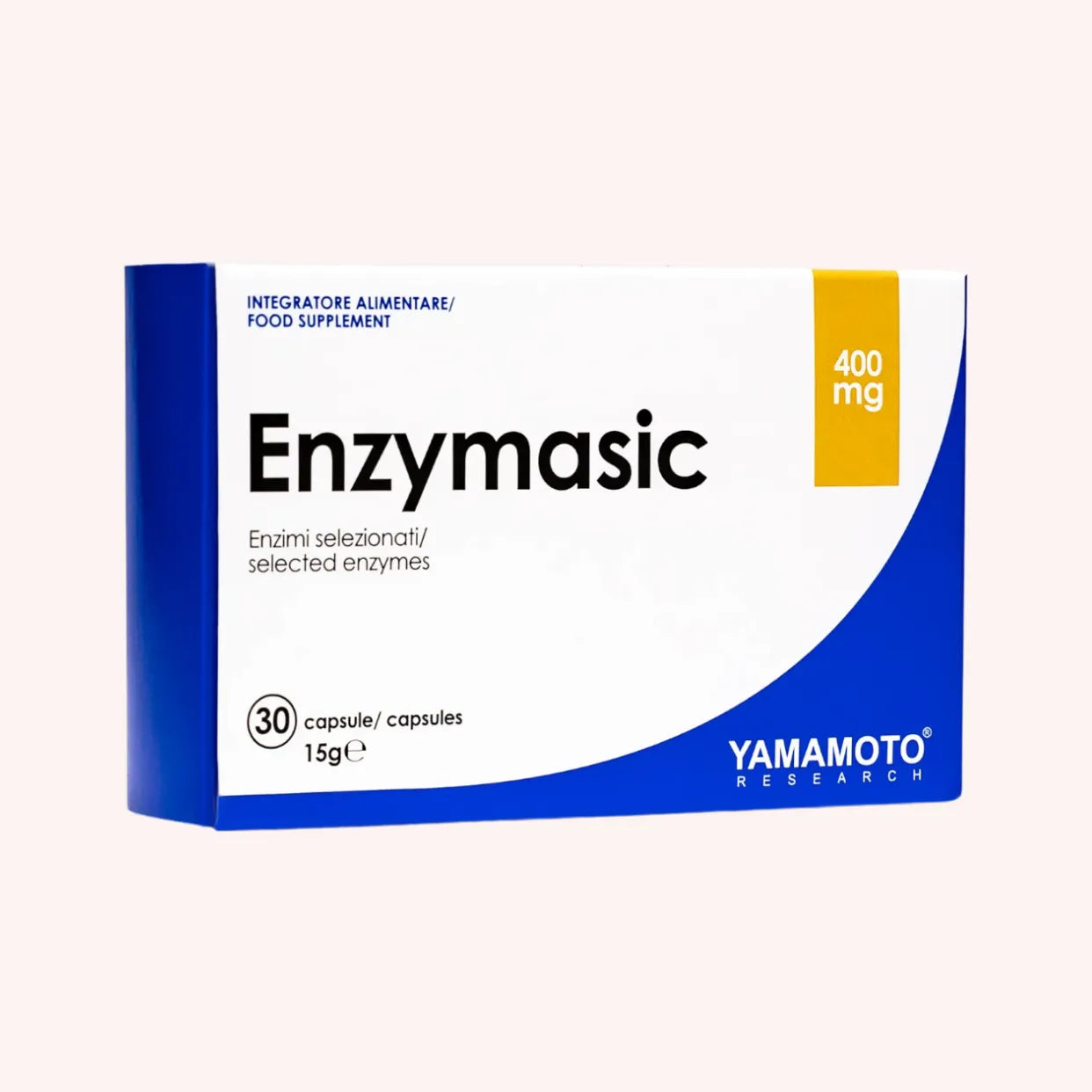3 products
Digestion is a complex process that depends on many factors, including digestive enzymes. These essential molecules play a role in breaking down food, allowing our bodies to absorb essential nutrients.
In this article, we'll explore what digestive enzymes are, their types, how they work, and how supplements can support digestion. We'll also discuss the benefits of taking digestive enzymes and how to choose the right supplement.
What are digestive enzymes?
Digestive enzymes are proteins that help break down food into small molecules that are then absorbed by the body as nutrients. Each type of enzyme targets a specific macronutrient, whether it's protein, carbohydrates, or fat.
These enzymes are naturally present in our bodies, but they can also be added in the form of food supplements to increase their intake.
Role of digestive enzymes in digestion
Digestive enzymes play a fundamental role: they speed up the chemical reactions that transform food into absorbable nutrients. Without these enzymes, our digestive system would struggle to break down food into components small enough for our bodies to use. Here's a look at their function:
- Proteins: Enzymes called proteases break down proteins into amino acids.
- Carbohydrates: Amylases break down complex carbohydrates (such as starch) into simple sugars, which the body uses for energy.
- Fats: Lipases break down fats into fatty acids and glycerol, two important components for metabolism.
The Different Types of Digestive Enzymes and Their Benefits
Each digestive enzyme has a specific function on a specific molecule.
Amylase: The Carbohydrate Enzyme
Amylase is responsible for breaking down starch, a complex carbohydrate found in many foods such as cereals, pasta, and bread. It converts starch into simple sugars such as glucose.
Protease: The protein enzyme
Proteases break down complex proteins into amino acids so the body can absorb them.
Lipase: The fat enzyme
Lipase is responsible for breaking down dietary fats. It converts triglycerides into fatty acids and glycerol. Poor fat digestion can lead to digestive discomfort.
Lactase: The lactose enzyme
Lactase is essential for breaking down lactose, which is found in dairy products. Lactase improves lactose digestion in individuals who have difficulty digesting it, often suffering from lactose intolerance.
Bromelain and papain: Proteolytic enzymes
Bromelain (from pineapple) and papain (from papaya) are proteolytic enzymes, meaning they break down proteins. These enzymes are often used in dietary supplements.
Food supplements based on digestive enzymes
Digestive enzyme supplements can help increase your nutritional intake. A decrease in digestive enzymes in the body can be caused by factors such as age, an unbalanced diet, or digestive problems.
Why take digestive enzymes in supplement form?
Although the body naturally produces digestive enzymes, some people may not produce enough of them, particularly due to a diet that is very high in calories and foods. Digestive enzyme supplements can be particularly helpful for:
- Help individuals who have difficulty digesting lactose.
- Increase your intake of digestive enzymes.
It is important to consult a healthcare professional before starting any supplement to avoid any interactions with pre-existing health conditions.
Foods rich in digestive enzymes
Certain foods are naturally rich in digestive enzymes that help break down nutrients and optimize digestion:
- Pineapple: Contains bromelain , an enzyme that breaks down proteins.
- Papaya: Rich in papain , an enzyme that breaks down proteins.
- Kefir: Contains probiotics and lactase , facilitating the digestion of lactose.
- Mango: Source of amylase , which breaks down starch into simple carbohydrates.
- Sauerkraut and kimchi: Fermented foods rich in probiotics and digestive enzymes.
- Avocado: Contains lipase , an enzyme that helps break down lipids into fatty acids.
These foods can provide you with many benefits thanks to their natural enzymes and other nutrients.
How to choose the right digestive enzyme supplement?
With so many digestive enzyme supplements available on the market, it can be difficult to make an informed choice. To help you select the product that best meets your needs, here are several key criteria to consider:
- Enzyme type: Make sure the product contains enzymes that are appropriate for your needs (amylase for carbohydrates, lipase for fats, etc.).
- Product quality: Quality is crucial. Choose reputable brands that are transparent about the composition of their products. Check the ingredient list and make sure the product doesn't contain artificial additives, preservatives, or unnecessary fillers that can impair its effectiveness. Enzymes should be of natural origin, and the source of raw materials (such as plant extracts for bromelain or papain) should be clearly stated.
- Supplement form: Capsules are often the most convenient because they are easy to take and dose, and they allow for a gradual release of enzymes in the stomach.
- Expert Recommendations and Opinions: Before choosing a supplement, it is always best to consult a healthcare professional, such as a doctor or nutritionist, especially if you have specific medical conditions.
Conclusion :
Digestive enzyme supplementation can be beneficial in some cases. Understanding the different types of enzymes and their role in nutrient breakdown can help you choose the right supplements for your needs.
Source :
- Forsgård, R. et al. (2019). Lactose digestion in humans: intestinal lactase appears to be constitutive whereas the colonic microbiome is adaptable. The American Journal of Clinical Nutrition. DOI: https://www.sciencedirect.com/science/article/pii/S0002916522011765?via%3Dihub











